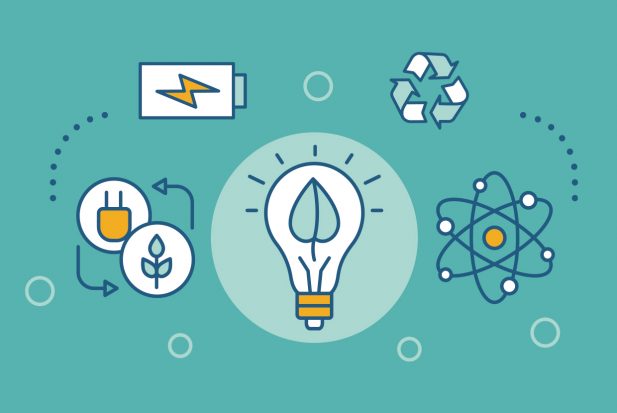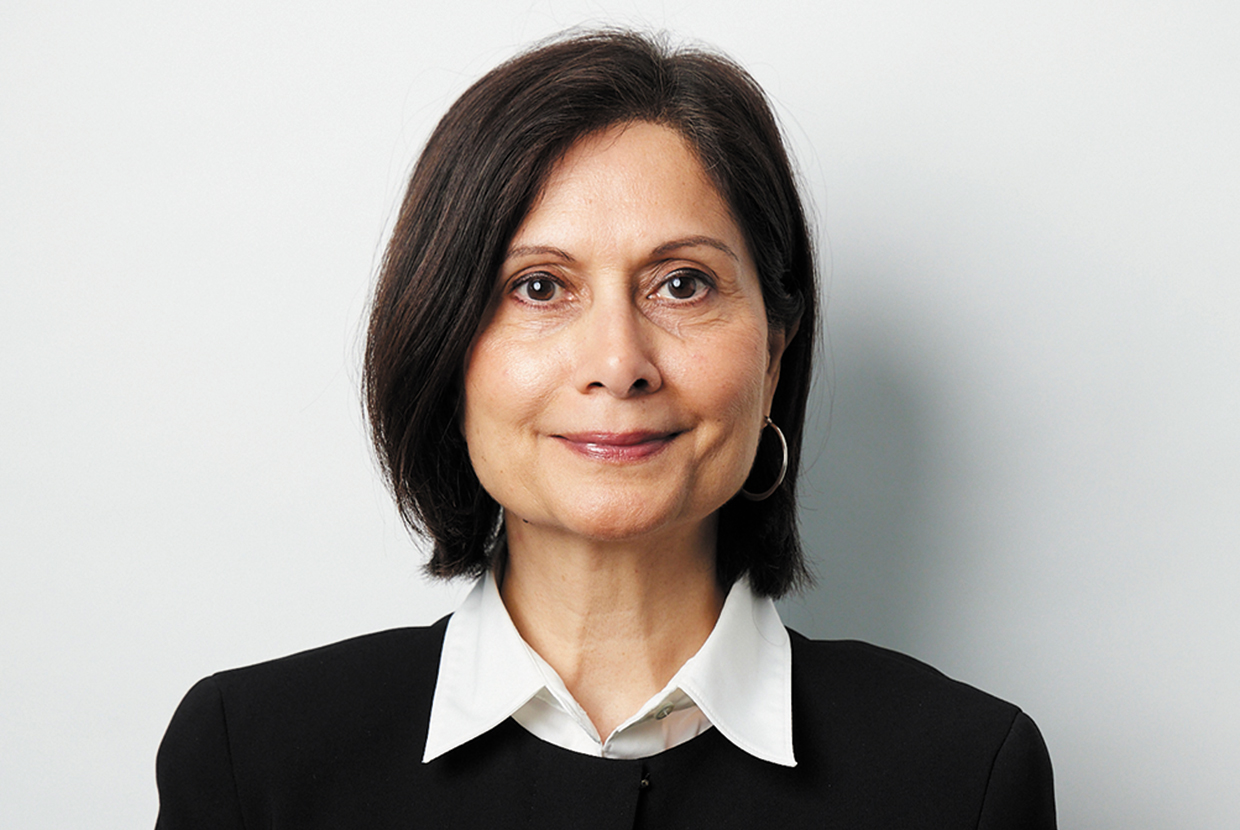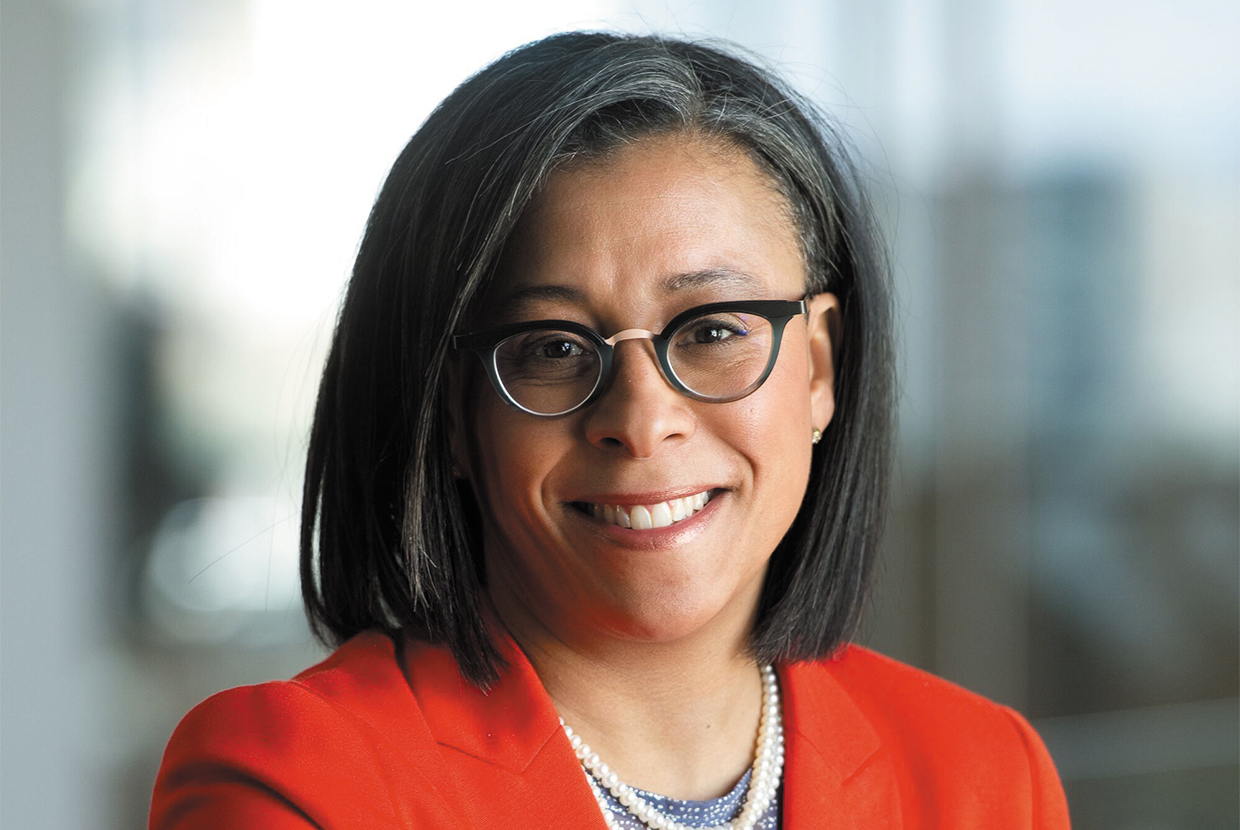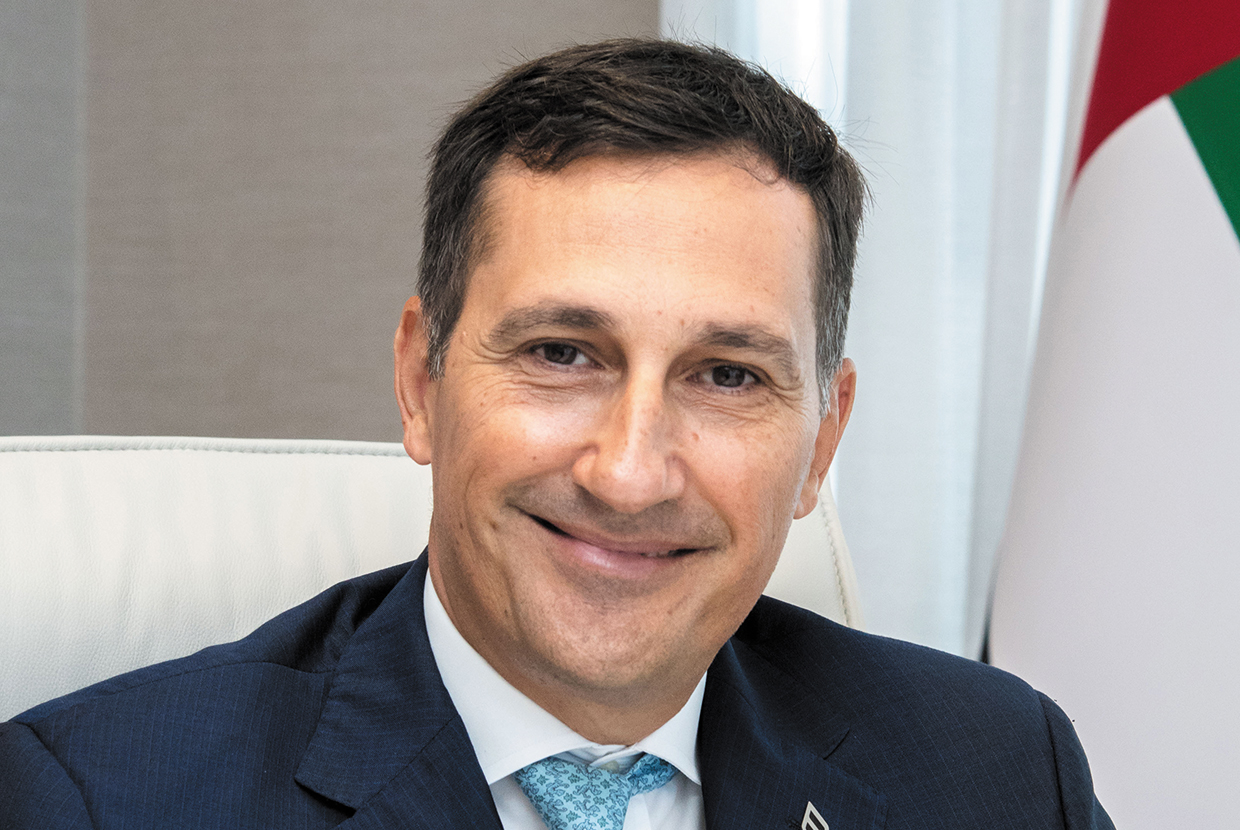
Ahead of the COP26 summit in Glasgow, where world leaders are expected to thrash out new targets for reducing greenhouse gas emissions, GTR speaks to export credit agencies in Europe, North America, the Middle East and Australasia about whether the energy transition is impacting the export finance market and how they are responding.

Swati Dave, managing director and CEO of Export Finance Australia
GTR: Does Export Finance Australia (EFA) have any specific goals or targets for reducing the emissions profile of its portfolio, or support for clean technology?
Dave: EFA operates on a commercial basis. We assess all financing transactions on a case-by-case basis. All transactions are subject to our robust credit and due diligence criteria. This includes ensuring they meet internationally recognised environmental and social due diligence requirements.
We recognise that global policy commitments to transition economies from fossil fuels to renewable energy continue to gain momentum. We have also seen that commercial banks are withdrawing from financing certain fossil fuel projects.
Like other export credit agencies, EFA understands that managing the physical and transition risks of climate change is an important and complex issue. Through our Indo-Pacific infrastructure mandate, we’re seeing opportunities to finance overseas projects that deliver renewable energy and low emissions technology. Our recent financing of the Lotus wind farm project in Vietnam is an example of this. We are assisting with the energy transition, including early work on future energy solutions, such as hydrogen, a key potential export industry for Australia.
GTR: Australia, like some other resource-rich countries, has significant deposits of minerals which are crucial for the manufacturing of batteries and other non-fossil fuel energy sources or technology. Is that a sector you expect EFA will have a role in supporting?
Dave: Our critical minerals mandate has focused us on this important sector for Australia. We have many of the elements the world needs to produce advanced technology, like batteries, which are necessary to support the energy transition. Critical minerals projects present unique financing challenges and there is limited appetite from the commercial financing market.
This is where EFA is playing a key role. Since November 2019, we have held more than 240 engagements with 28 critical minerals proponents to find the right financial solutions to support their development and growth.
We have provided conditional letters of support to six potential customers. These letters send a strong signal to the market that we are focused on helping these companies develop a viable exporting business.

Justine Hendricks, chief corporate sustainability officer and SVP sales and business enablement at Export Development Canada
GTR: Export Development Canada’s (EDC) announcement of its net zero targets also acknowledges that the agency has a mandate to support all Canadian exporters. How will you reconcile the need to turn down fossil fuel support, for instance, with sticking to that mandate?
Hendricks: EDC’s mandate is to support and develop Canada’s export trade, for the benefit of all Canadians and the domestic economy. As such, EDC’s commitment to net zero by 2050 is focused on enabling Canadian businesses, including those in natural resources and energy sectors, to position themselves for growth by investing in their ESG performance. It’s our view that the best way we can effect change is by working within our mandate and partnering with our Canadian customers operating in carbon-intensive sectors, supporting their efforts to innovate and reduce their carbon intensity.
Last year, for example, we began asking our oil and gas customers receiving financing products larger than C$5mn and with a tenor greater than two years – and that are not already doing so – to align with the recommendations of the Taskforce on Climate-related Financial Disclosures.
EDC will continue to focus its attention on the oil and gas industry in light of its high carbon intensity. Initial steps include supporting Canadian companies as they innovate to reduce their emissions and phasing out new direct government support for international carbon intensive fossil fuel projects and companies.
EDC has set bold sustainability objectives and, although there is much work to be done, we have taken great strides. In 2019, we began work to set a target to reduce financing exposure to the most carbon intensive sectors by 15% over five years from a December 31, 2018 baseline of C$22.4bn. EDC met that target in 2020 and has strengthened that target to a 40%, or C$8.9bn, reduction. Meanwhile, we’re increasing our support to Canada’s cleantech sector and promoting innovative Canadian technologies that companies need to help drive down emissions. Over the past three years alone, we have increased our support to the cleantech sector by more than 120%.
GTR: Achieving net zero involves some level of neutralising remaining scope 3 emissions in EDC’s portfolio. What ratio do you expect there to be of neutralised emissions compared to reduced emissions? Will those be neutralised through providing support for projects that actively reduce/displace emissions, or will EDC be purchasing offsets or trading carbon?
Hendricks: EDC has set a goal to reduce our operational emissions to net zero by 2030, in other words, our scope 1 and 2 emissions. We have started to address scope 3 emissions from our business portfolio with our 2023 carbon reduction target, and are currently exploring how to integrate scope 3 emissions into subsequent interim targets.
The targets we’ve set thus far are:
- By 2023, reducing our financing support to the six most carbon intensive sectors by 40% below 2018 levels. This is the first step toward phasing out new direct government support for international carbon intensive fossil fuel projects and companies, as committed to by Canada and the G7.
- By 2030, driving further emissions reductions through science-based, sectoral emission intensity targets. These targets, which we will set and publicly disclose by July 1, 2022, will encompass those businesses operating in the most carbon intensive sectors.
- Setting and disclosing a sustainable finance target by July 1, 2022 to increase our support for innovative Canadian business aligned with the low-carbon transition through mechanisms such as our cleantech solutions, green bonds, sustainability-linked lending and knowledge products.
- Reducing our operational emissions to zero by 2030 and considering, only as a last resort, purchasing carbon offsets – a means of compensating for emissions – as an interim solution or where reasonable alternatives are not found.
We are currently working on a data and methodology pilot. This pilot will help us determine how to best measure, monitor and report on the carbon intensity of our business. This work will also inform how we can expand the targets to other sectors and financial products.
We are committed to continuing this examination and making choices to help meet our climate goals, and those of our country. We will also be transparent at every stage of our net zero journey and update stakeholders on our progress towards establishing new targets in our climate-related disclosures, published in our integrated annual reports.

Arjen Walbroek, senior lead sustainability at Atradius Dutch State Business
GTR: Does Atradius Dutch State Business (DSB) have any specific goals or targets for reducing the emissions profile of your portfolio, or support for clean technology?
Walbroek: Already back in 2019, Atradius DSB was mandated to develop incentives to accelerate support for green projects, including clean technologies.
The goals are in place, but we also can say we have adjusted our operations accordingly, for example by hiring a lot of new expert staff, especially on the functions that we need to support our green focus: accelerate business development, product development and ESG-specialists. Needless to say: the role of sustainability lead is also part of this new focus. Driven by progressive policies determined by the Dutch state, we are rolling out various incentives and improving our existing ones.
This means we will actively focus on green transactions instead of others. It also means engaging with a new group of potential green export companies that are often new to export credit insurance products. For those companies we have put green incentives in place.
In order to determine which transactions are green, we have developed a classification system called the Green Label. This identifies three categories of green: climate mitigation, climate adaptation and non-climate-related green business. Atradius DSB is one of the first ECAs to have implemented such a methodology.
The Green Label also allows us to track the green developments of our portfolio and be transparent about it. Generally speaking, climate policy falls in between incentivising green projects on one hand and restricting fossil fuel-related projects on the other. The Netherlands has already ended support for thermal coal-related projects.
A further decision on the phase out of other fossil fuel-related support is up to the next government.
In the meantime, we have gained insights into the level of our exposure to the fossil fuel value chain. We have made this process transparent by starting with a detailed breakdown and classification of the entire portfolio, which was published in our annual report.
GTR: Are you undertaking any efforts to boost the viability or export potential of Dutch companies that are developing sustainable products or products relating to clean energy?
Walbroek: As an export credit agency we must stick to our mandate, which is quite well-defined and set by international agreements and law. Our credit insurance policies can be decisive to close a financing deal. This can ultimately boost the chances of a green venture achieving success.
Besides the well-known industry giants, the Netherlands is home to a growing group of startups and scale-ups that are taking part in the new and growing green economy.
However, we observe that in many countries traditional financiers and investors are just at the beginning of fully integrating these kinds of businesses and their accompanying risks. The financing needs of green ventures might not be as extensive as those of the bigger firms but even obtaining seed capital can be difficult. In our daily work, we are seeing many passionate entrepreneurs developing proof of concept products, but are piloting them with only one or two clients.
At Atradius DSB we aim to support these often innovative SMEs by unlocking their export potential, so they will be able to also interact more with global financial markets.
Traditionally, Atradius DSB insures projects that are generally not serviced by regular credit insurance providers due to their size, duration or destination. We believe that green innovations such as biogas installations, waste recycling projects or off-grid solar systems have high growth potential with global reach, and are where publicly-backed ECA facilities can also be very helpful – specifically when they can apply special incentives and conditions for important yet underserved sectors.

Massimo Falcioni, CEO of Etihad Credit Insurance
GTR: How do you see the energy transition away from fossil fuels impacting the export finance market in the UAE and demand for Etihad Credit Insurance’s (ECI) products and services?
Falcioni: The economic diversification policy in the UAE has gained tremendous momentum lately as the government increasingly focuses on alternative sectors in order to reduce the dependence on fossil fuels. As a result, the non-oil trade and export finance market here has become more significant in determining the country’s economic growth in the future.
As of August 2021, ECI issued 5,235 revolving credit guarantees to sustain the UAE non-oil trade for a total exposure amount of Dh3.1bn.
We seek to double the number of credit guarantees every year and target to cover Dh27bn non-oil trade by 2024, Dh13.5bn of which will be exports. We will continue to protect businesses’ cash flows and ease SMEs’ access to trade finance, thereby improving their contribution to the industrial sector of the UAE economy.
Our trade credit solutions create new investments and project financing opportunities, thereby adding value to the UAE’s non-oil GDP, employment and SME sector development.
The ease of access to such trade and project financing and other services we provide will bolster the ambitious initiatives by the UAE government, including ‘Operation 300bn’ and ‘Make it in the Emirates’, ultimately playing a catalyst role in achieving the country’s vision for the next 50 years.
GTR: Is Etihad Credit Insurance actively looking to support businesses that operate in industries such as renewable energy, clean technology and sustainability?
Falcioni: ECI aims to strengthen the position of the UAE as a global leader in creating sustainable cities and addressing global warming. Reflecting its strong resolve to create sustainable cities, ECI has partnered with Masdar, Abu Dhabi Future Energy Company, to work on initiatives to support investment in renewable projects that will contribute to reducing carbon emissions.
Our contribution to the growth of the energy and sustainability sector comes in line with the country’s ‘Energy Strategy 2050’, which aims to allocate over Dh600bn to meet its goal of increasing the contribution of clean energy sources in the total capacity mix to 50% (44% renewable and 6% nuclear) by 2050. Through these undertakings, ECI supports the UAE leaders’ vision of helping create sustainable communities that will be enjoyed by future generations to come.
GTR: Are you seeing any shifts in demand or approaches to ECI that you can attribute to shifting energy sources?
Falcioni: ECI always stands for sustainable development strategies, not least because they are essential to mitigate the inexplicable harms done to nature due to our reliance on fossil fuels and alarming levels of carbon emission. We understand and endorse the need for adopting sustainability goals in every business venture. Therefore, ECI has been actively involved in several initiatives and collaborated with many organisations to empower the sustainable development goals of the UAE.
Under the MoU signed with Masdar, we agreed to explore building together cost-effective insurance and financial guarantees to support Masdar’s global development ambition of achieving clean and renewable energy infrastructure development.
ECI also provides support for Emirates Waste to Energy Company, a joint venture between Bee’ah and Masdar, to develop the UAE’s first solar landfill project in Sharjah to boost the emirate’s renewable energy generation capacity. It will produce technology on how to generate energy from waste, making it affordable and accessible for developing nations.
In addition, a leading player in the energy sector has recently signed a medium-to-long-term project financing policy with ECI, which extends for 15 years. Under this agreement, ECI is committed to providing guarantees worth Dh200mn to ensure the company’s business continuity and boost its competitiveness.











